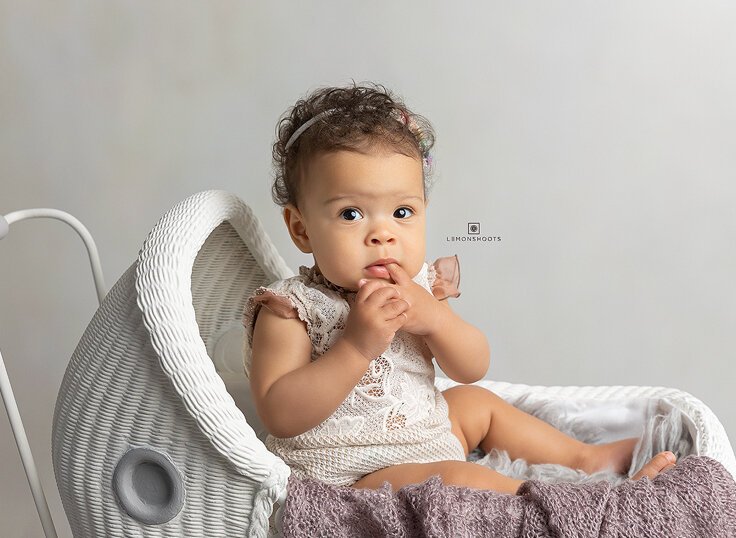Baby Carrier vs Stroller: Which Is Better?
Nearly a year spent in maternity mode provides ample time (arguably too much time!) to think about what you’ll need when the baby arrives. Among those many decisions is the debate about which is better - a baby carrier or a stroller.
Baby Carrier vs Stroller: Which Is Best?
In almost all cases, parents are going to choose “all of the above” because both have benefits in different situations. So, today, we’ll go over the list of pros and cons.
Spoiler Alert: You can get by without a stroller for quite some time because newborn infants want to be held, snuggled, and kept close to the body for the first few months.
Pros & Cons Of Baby Carriers (For Babywearing)
For this post, we’re referring to baby carriers strapped to a parent or caregiver's body, keeping the baby close to it. We are not talking about the car-seat-slash-baby-carrier, which is held separately from the body and often snaps into a car seat base or a stroller.
There are many pros of using baby carriers when you’re in motion - whether doing chores around the house, running errands, or taking a walk or hike. Studies also show that wearing babies using a carrier of your choice (there are many models and styles, so it’s worth shopping around to find your favorite).
Pros of baby carriers:
Promotes attachment and bonding
Keeps you closer to your baby to read their cues (nursing/feeding & diaper changing)
Makes it easier to nurse or feed baby
Keeps the wearer hands free - helpful for getting things done and tending to other children
Promotes a sense of safety and security for baby
Easier to pack, get in/out of the car
Cons of baby carriers:
That said, there are times when baby carriers aren’t the best option:
Can aggravate neck/shoulder/back issues. They are hard on moms and caregivers with back or shoulder problems (very common for new mamas). If the carrier aggravates your body, visit a store that sells them to ensure you’re using them correctly. It might also be a sign to prioritize self-care and work with a postpartum physical therapist, chiropractor, or fitness trainer who can help you heal and strengthen the postpartum body.
Most baby carriers are only designed for one child, so twins or triplets can’t be in altogether after those first few weeks.
It gets heavier and heavier as the baby grows, which makes it harder to maneuver once your baby is heading into the one-year-old and older bracket.
Once your baby gets bigger, you’ll have a more challenging time carrying things like drinks, wipes, or anything else due to the baby’s movement, interest in grabbing, and less arm mobility.
Active babies may find the carrier confining and prefer the body freedom available from a stroller.
Carriers are harder to use if you’re pregnant, especially during the later stages.
Again, in my experience, parents who familiarize themselves with baby-wearing carriers and get comfortable with them prefer them almost exclusively during the first few months. After that, they use them interchangeably with strollers depending on the activity, location, and the baby’s innate desire for independent movement.
Pros & Cons Of Strollers
At some point, almost all parents use a stroller. However, you may want to forgo purchasing one until after your baby is born to figure out which stroller type(s) you really need. Many parents find that the extra money spent on the most expensive designer or current “must-have” versions would have been better put elsewhere.
Pros of using a stroller
Pushing a stroller is much easier as the baby gets bigger and heavier.
There are strollers designed for more than one baby, making it easier for parents/guardians of multiples or who have a toddler or small child sibling in the mix.
Convertible strollers make it easy to unsnap the car seat and click it into stroller gear during the younger months.
Strollers allow your baby to interact more with the world at large than a carrier.
After the first few months, most babies/toddlers are happy to nap reclined in the stroller. This is much easier on the wearer since big, sleeping babies are heavy.
Most strollers have built-in storage holders so you can navigate easier with all of your stuff.
The baby is less likely to get hot and fussy during the warmer months and can be bundled appropriately when it’s cold.
Avid hikers and walkers prefer the all-terrain models once the baby is over 10 pounds - especially on inclines and downhills.
Much easier on your body if you’re pregnant with number 2 or 3.
Cons of using a stroller
Strollers are often bulky, and they’re difficult to navigate in crowded places or on public transportation.
Even the most compact collapsible versions can be a pain to get into and out of a vehicle.
They prevent you from having face-to-face or body-to-body contact during those first important weeks and months.
Some experts say a child left too often in the stroller has slower motor coordination and development, so make sure to balance stroller and movement time.
Lemonshoots Believes You Can Have It All
As a maternity and newborn photographer, the baby carrier vs stroller debate is almost always decided on the side of having both of them. Baby carriers are invaluable during those first few weeks and months of infancy, after which parents tend to use them interchangeably with strollers - depending on the situation.
As long as you’re planning what to get once your baby is born, how about scheduling your maternity and newborn photo sessions at Lemonshoots? The priceless images we capture together will carry you through the heavier parenting moments. Contact me to get on the books.

